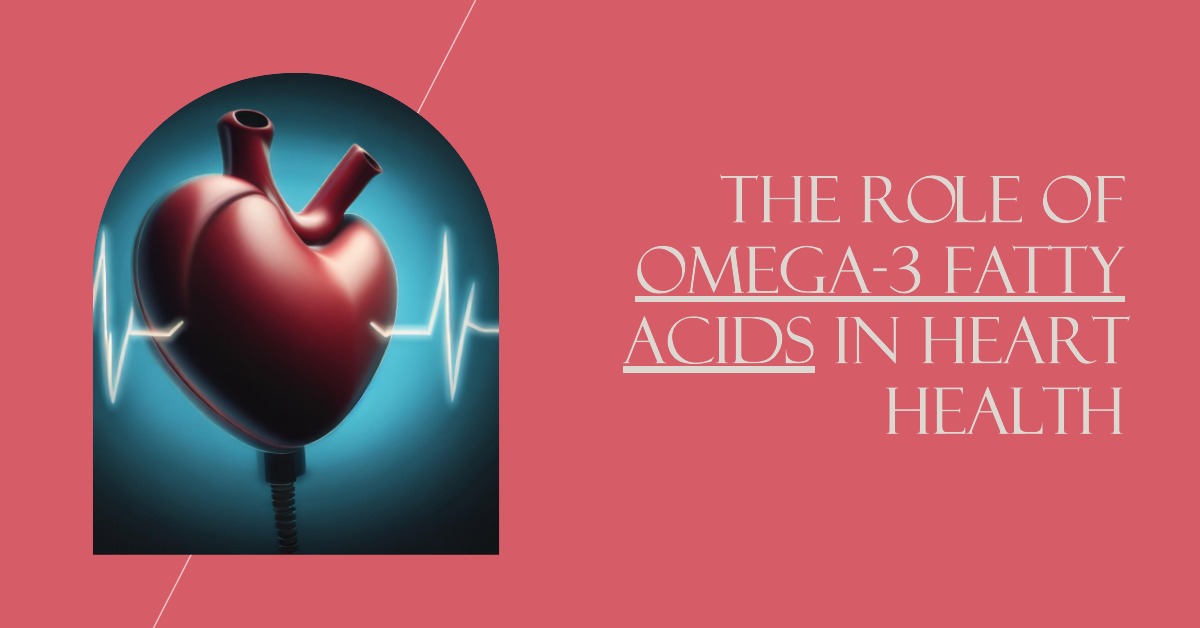
In the pursuit of optimal heart health, one nutrient stands out for its remarkable benefits: Omega-3 fatty acids. This essential fat, which the body cannot produce on its own, plays a vital role in maintaining heart health, reducing inflammation, and keeping our arteries clean.
What Exactly Are Omega-3 Fatty Acids, And How Do They Support Our Cardiovascular System?
Omega-3 fatty acids are a type of polyunsaturated fat that comes in three main forms:
- ALA (alpha-linolenic acid)
- DHA (docosahexaenoic acid)
- EPA (eicosapentaenoic acid)
While ALA is commonly found in plant sources like flaxseeds and walnuts, DHA and EPA are primarily sourced from fatty fish like salmon and mackerel.
One of the primary benefits of omega-3s is their ability to lower levels of triglycerides, a type of fat in the blood that can increase the risk of heart disease when levels are too high.
By decreasing triglycerides, omega-3s help prevent the buildup of arterial plaque, a condition known as atherosclerosis, which can lead to serious heart-related issues like heart attacks and strokes.
Omega-3 fatty acids also contribute to heart health by reducing inflammation. Inflammation plays a significant role in the development and progression of heart disease. By reducing inflammation in the body, omega-3s help maintain the health and function of our arteries and prevent cardiovascular disease.
Moreover, omega-3s can increase the levels of “good” HDL cholesterol in the body. HDL cholesterol helps remove the “bad” LDL cholesterol that can build up in your arteries, therefore promoting cleaner arteries and improved heart health.
The understanding and management of heart health can be complex. While omega-3 fatty acids play a significant role, it’s essential to consider other dietary and lifestyle factors. For instance, the benefits of monounsaturated fats for arterial health can’t be ignored. Like omega-3s, these healthy fats contribute to lowering “bad” LDL cholesterol and increasing “good” HDL cholesterol.
Another important dietary component is dietary fiber, which helps keep your arteries clean by reducing the absorption of cholesterol into your bloodstream. Similarly, antioxidants and their impact on cardiovascular health can’t be understated, as they can help reduce inflammation and prevent damage to your arteries.
Beyond diet, understanding the role of LDL and HDL cholesterol and the connection between inflammation and heart disease is crucial. Furthermore, adopting a heart-healthy diet overall, incorporating regular exercise into your routine, maintaining a healthy weight, and quitting smoking can all significantly improve your heart health.
Conclusion
In conclusion, omega-3 fatty acids are an essential component of a heart-healthy diet. Their ability to reduce inflammation, lower triglycerides, and increase HDL cholesterol levels makes them a powerful ally in maintaining clean arteries and a healthy heart.
However, it’s important to consider omega-3s as part of a broader approach to heart health, one that includes a balanced diet, regular exercise, and a healthy lifestyle. Always consult a healthcare professional before making any significant changes to your diet or lifestyle.


